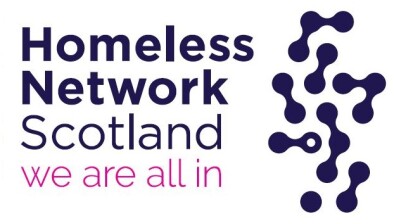Garry Burns: Rehab and housing – A practical solution
 Following the tragic news that a young man died of a drug overdose days after leaving his rehabilitation placement, Homeless Action Scotland communications and engagement manager Garry Burns offers a practical housing solution to help prevent similar deaths from happening in the future.
Following the tragic news that a young man died of a drug overdose days after leaving his rehabilitation placement, Homeless Action Scotland communications and engagement manager Garry Burns offers a practical housing solution to help prevent similar deaths from happening in the future.
Homeless Action Scotland regret the recent death of a young man who died of a drug overdose days after leaving his rehabilitation placement, for fear of losing his home.
Systems often overlook those who are vulnerable and all too often system change takes too long with too many people suffering in the interim while politicians and organisations try to work out the best way forward. All too often organisations within the system who administer the system will seek to absolve themselves of responsibility, blame other organisations, or blame the system they are part of.
The news of another life being lost to addiction is tragic. However the story is indicative of many people’s stories who have an addiction, mental health problem, cognitive impairment, or who live a life which is sometimes chaotic with regards to their housing.
At Homeless Action Scotland we believe there must be something done – and done immediately. We believe that there is enough within our legislative framework to stop this from happening again. Crucially, we believe these changes are not difficult to bring about because they are based on what can happen and is already happening right now in some parts of Scotland. All that is required to make it work is for those with the power to exercise it to make it so that we never again have someone choose between their health or their home.
These examples are based on what some local authorities already do, what has been done in the past, and what can be done in the future.
DHP
Discretionary Housing Payment is a funding stream used to pay for a tenant’s rent temporarily when they cannot afford to pay it themselves. As the name suggest it is discretionary and is used primarily to pay for the “bedroom tax” and top up private rents when a tenant’s housing benefit does not cover the full rent charged. However it can be used for a variety of purposes which can include for those who are entering rehab. There is no national requirement for DHP to be used for rehab, but there is one for the “bedroom tax”. The Scottish Government and COSLA, together could very quickly issue a directive to councils instructing them to make addiction treatment a priority when issuing DHP. It may require additional resources but we believe that this would be an entirely appropriate and humane allocation of said resources. All that is required is the will
Rent Abatement/Rent Suspension
Councils and Housing Associations can apply a rent abatement to anyone they deem fit to get one. In essence, this amounts to the council or housing association accepting that they will not be getting a rental income for that particular property for a particular time. Councils and Housing Associations can choose to write off any debt accrued for a tenant. This system has been used for many different reasons and can include someone going into rehab. The Scottish Government, COSLA and the Housing Regulator could issue guidance or recommendation that rent abatements are applied to people going into drug rehabilitation. All that is required is the will.
Social Work/Addiction Team’s Pay Rent
As part of someone’s journey into becoming free from addiction social work teams across Scotland have access to various funds which can be allocated in order to support someone on their journey of recovery. These funds have decreased over the years by both central government and local authorities, however they still exist. Social Work teams can allocate said monies to either pay the rental charge of the vacant property or to pay the recipient’s drug rehab costs through their funds as opposed to through housing benefit. The Scottish Government and COSLA could issue guidance on this. All that is required is the will.
One, some, or all of these are solutions to the problem that of losing your home because you want to enter into rehabilitation. One, some, or all of these solutions have been used in the past by local authorities and housing associations. Those particular councils and RSL’s had the will to support their vulnerable tenants. Those particular councils and RSL’s had management and staff who were kind, creative and caring. To those unnamed workers many people owe their lives. But we believe that the system shouldn’t be about whether or not your housing officials happened to care about your addiction. The system should automatically protect all vulnerable people, including those with addictions.
These solutions are not the answer to the problem of drug related deaths in Scotland, but they are a solution to ensuring that no one has to choose between becoming drug free or losing their home.
It is of particular concern that the young man felt that he had to quit rehabilitation from addiction for fear of losing his home. We would ask why this was the case given the current moratorium on evictions. If there was indeed pressure from the landlord to return to his address and the threat of eviction was used, this must be investigated and those who are responsible held to account. Landlords should not be using the threat of eviction against someone who they cannot legally evict. We believe that this matter should be investigated by the Scottish Housing Regulator as a matter of urgency so that lessons can be learned. If what is reported is true, we must ensure that this never happens again.
If there are any organisations, groups or individuals who wish to know more about this then get in touch with us at garry@homelessactionscotland.org.uk.
A person should not have to choose between their health or their home, yet this is what the system currently forces people with addictions to do. Housing has recently been promised by this government as a human right, but what use is that right when we have addicts, fearful of becoming homeless, giving up on their journey to recovery?









